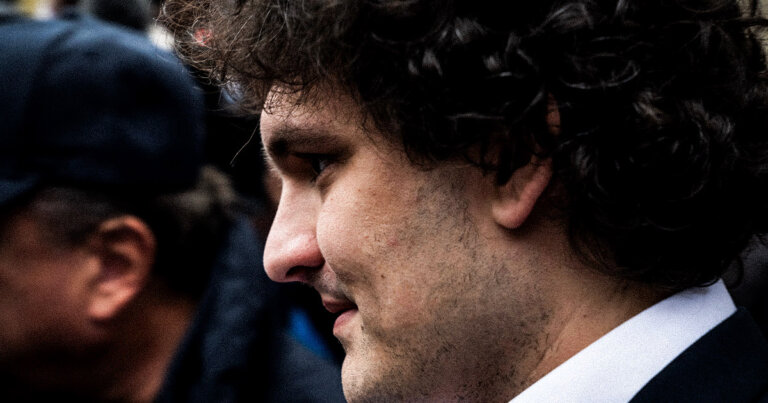 DoJ says SBF has tried to ‘corruptly influence witnesses’ multiple times; urges bail revocation
DoJ says SBF has tried to ‘corruptly influence witnesses’ multiple times; urges bail revocation DoJ says SBF has tried to ‘corruptly influence witnesses’ multiple times; urges bail revocation
By leaking Caroline Ellison's diary, SBF has not only attempted to tamper with a witness, but also interfered with a fair trial by trying to influence prospective jurors.

lev radin / Shutterstock
The U.S. Department of Justice (DoJ) urged federal judge Lewis Kaplan to revoke FTX founder Sam Bankman-Fried’s bail in a filing on July 28. The DoJ argued that SBF has “flouted even the increasingly strict conditions” placed on him multiple times.
The DoJ’s request comes after SBF surrendered 8 pages of former CEO of Alameda Research Caroline Ellison‘s diary entries in court on July 27.
The DoJ stated that SBF leaked Ellison’s diary to the New York Times to “intentionally harass” her. The DoJ claimed that SBF’s goal in leaking the documents was to “hinder, prevent, or dissuade” Elisson from testifying against him. Ellison signed a plea deal in December and is set to testify in SBF’s trial scheduled in October.
With multiple infractions of bail conditions and his recent conduct, which “reinforces his intent to influence witnesses,” it is necessary to jail SBF, the DoJ said, adding:
“…no set of pretrial release conditions can adequately assure the safety of the community and that the defendant is unlikely to fully abide by any conditions of release.”
Witness tampering and evading bail conditions
SBF was first accused of witness tampering in January for contacting the General Counsel for FTX US Ryne Miller over the messaging app Signal. In the same month, SBF was accused of violating his bail conditions by using a virtual private network (VPN).
At the time, SBF claimed he used the VPN to “watch football.” However, prosecutors discovered that the football matches he purportedly watched using a VPN were freely available on television, per the DoJ filing. Following these infractions, SBF’s bail conditions were modified to increase restrictions twice in January, twice in February, and a fifth time in March.
SBF leaking Ellison’s diary to the media was not just a second attempt at witness tampering but also an attempt to influence prospective jurors, the DoJ claimed, noting:
“…the defendant’s communications with the media were intended to affect the public’s—including prospective jurors’—impression of the defendant’s guilt.”
The DoJ added that SBF intended to “portray a key cooperator testifying against him in a poor and inculpatory light” by leaking the diary, which was not part of the prosecution’s discovery material. It was also an “effort to influence or prevent the testimony of other potential trial witnesses by creating the specter that their most intimate business is at risk of being reported in the press,” the filing noted.
Although SBF has no criminal history, the DoJ argued that he faces a potential sentence of over 100 years, demonstrating the issue’s seriousness and the need for a fair trial.
The DoJ concluded:
“What the defendant may not do, and what he has now done repeatedly, is seek to corruptly influence witnesses and interfere with a fair trial through attempted public harassment and shaming.”






























































